“It’s kind of a cliché, but it really does feel like we've strapped ourselves to a rocket and we're pointed up!” Introducing the exciting world of industrial tech, transportation tech and aerospace.
Isaac Hickford, April 2024
“One of the best days I’ve had on this job was during an early visit to our engine test facility,” says Alex Yabroff, assistant general counsel at Relativity Space, an aerospace company in LA. Tests didn’t go according to plan, but it was the race to figure out what had happened that Yabroff was most inspired by: “I was speaking to some of our engineers – who hadn’t yet figured out what happened – but these incredibly bright, creative minds were fully confident in their capacity to solve the problem.” For those familiar with the space tech startup world, these situations are part of the fun, but they also shine a light on what’s unique about the sector. “You’re working with individuals who are laser-focused on trying to do something new. They aren’t scared of problems that take time and effort to understand,” Yabroff adds, “every time I deal with the men and women who are actually building our rockets, I come away with a feeling that keeps me going.”
“You can look at the big companies currently at the top and ask: ‘Which of these are going to be replaced by startups that are two years old today?’” - David Pendergast
Early-stage companies in these kinds of sectors are united by their emphasis on the new, and for lawyers in the space it’s no different. Getting involved in industrial tech demands an appetite for pushing boundaries, whether that’s in-house for a company building planes, trains or automobiles, or part of a startup practice at a law firm. The draw for lawyers, according to Whistler Partners’ founder Sean Burke, is about finding a place at the cutting-edge: “Companies like Toyota, Honda, and BMW have been competing for decades. But when companies like Tesla came to the table, they took risks, and they were innovative, and the biggest car companies in the world are now playing catch-up on electric cars.” As David Pendergast, partner in Goodwin’s technology practice puts it: “You can look at the big companies currently at the top and ask: ‘Which of these are going to be replaced by startups that are two years old today?’ and that’s pretty exciting to think about.”
In a number of ways, industrial, transportation tech and aerospace companies are changing the landscape of these industries. For Virginia Terry, managing director at Whistler, part of this is the freedom to set their own rules: “These companies are willing to cultivate a different culture. The more ambitious engineers are willing to come in at a lower base salary when these companies are taking a shot at being the next Tesla.” As a legal recruiter, Sean Burke believes that this is precisely the same for recruiting lawyers: “If you’re a software engineer, the chances are that you want to do it because you’re passionate about it. Companies like Rivian [an electric car manufacturer] are willing to take risks, and open doors, and that’s appealing for a lawyer working at a company where you have to get a permission slip to order pencils!”
The Talent Ecosystem
For lawyers interested in industrial, transportation tech and aerospace, it will quickly become clear that the ‘where’ matters. Like many similar industries, Southern California is something of a hub for aerospace startups. In short, because the engineers that specialise in aerospace are there already: “In Southern California, for example, Boeing and several other established companies are already there. And it’s engineers from those companies that break off to form companies like Relativity Space.” And part of the reason for that, Burke points out, is that schools like Stanford and Berkeley are churning out top tech and engineering talent in the area. “It’s precisely the same reason that Boston is a hub for life sciences. Because the scientists and engineers produced by schools like Harvard and MIT go on to found startups in the cities they live in.” As Whistler managing partner Karen S. Vladeck puts it, “it’s a lot harder to attract the talent if you also have to convince them to move halfway across the country.”
“I have two young sons who, instead of seeing me put on a suit and tie, can say that I am involved in building rocket engines." - Alex Yabroff
Of course, if you have a passion for the right sectors, the decision to make the switch won’t be as difficult: “I was stuck in an all-day deposition for a pension case in New York when I got the call from Whistler saying: ‘Hey, have you ever thought about working for a company that wants to 3D print rockets?!’” Alex Yabroff recalls, “I have two young sons, three and six, who instead of seeing me put on a suit and tie, can say that I am involved in building rocket engines, and I love that."
So, for attorneys looking to make the transition, where is the demand? Right from formation, these companies come across the same legal issues as any other startup, from employment and corporate governance to raising capital. “To a large degree, it looks like any Silicon Valley-style startup lawyers’ practice,” David Pendergast tells us, “my role is essentially to support these companies through the routine startup issues that come up all the time.” Of course, whether you’re working with cars or rockets, there will be at least some aspects of your work that are specific to the industry, but there’s plenty of overlap between industrial tech, transportation tech and aerospace…
A Shifting Regulatory Landscape
As you might expect from companies looking to develop technology in increasingly commercialized industries, there is a significant amount of regulation governing what players in the space are able to do. “In one instance, I’m very much acting as a lawyer and attorney counsel to the company, but in another, I’m essentially acting as a compliance professional,” Brad Powell, former senior counsel at Relativity Space explains, “as a company possessing some really interesting emerging 3D printing capabilities, we have a lot of technology and manufacturing know-how that the US government wants to protect, and that we must protect in certain ways given the regulations that apply to our technology.”
Why is it exactly that the US government monitors developments in space technology so closely? Put simply, US companies that know how to build and fly rockets can’t just freely engage with business partners around the world without appropriate levels of authorization. For Powell, ensuring that the company remains on the right side of this regulation forms a significant part of the day-to-day: “I’m orientated towards any aspect of our business that has a touch point that is non-US. Making sure that we are properly thinking through those relationships, and securing the licenses and authorizations we need.” In fact, this is something that David Pendergast echoes: “All aerospace companies have to deal with the overlay of export controls if they want to attract foreign investment,” Pendergast tells us, “Often, a company in the aerospace industry has technology that will be subject to restrictions – not just on physically shipping an item to China or Russia, but also hiring an engineer from places like India.”
“A lot of the clients in the startup world are setting foot where the rules haven’t been written yet.” - Sean Burke
There are, of course, aspects of the regulation surrounding industrial tech, transportation tech and aerospace that are continuing to emerge as the technology and infrastructure develops. Virginia Terry cites self-driving cars as one such example: “It’s one of the most interesting places for regulation right now, in that there almost isn’t any. There’s just guidelines at this point because regulators aren’t sure how to deal with all of the new technologies. So, it has become a regulatory grey area in the same way that crypto is.” For Burke however, this presents a unique opportunity: “A lot of the startups in this world are setting foot where the rules haven’t been written yet. So, the companies often have to be thoughtful about how they think it’s going to play out. And that’s part of what makes this intriguing as a lawyer.”
Government Contracts
As Yabroff puts it: “The US government is the largest purchaser of goods and services in the history of the world, and they set the rules on how and who they want to do business with.” As recently as five years ago, US Department of Defense in-house aerospace innovation spending had reportedly declined. Yet government interest in these sectors has always been a significant factor in the growth of these companies. “There is an interesting race going on in the world today between the West more broadly and China around who’s going to have the leading position when it comes to aerospace, space and defense,” Pendergast explains, “so the government will always keep a close eye on companies going after new possibilities, whether it’s new data-providing satellites or manufacturing things in space.”
The knock-on effect of this is that “you’ll need government contracts attorneys in a way that you wouldn’t necessarily need them if you’re a software service or an ad-tech company,” Burke adds. For Yabroff, who specialized in government procurement and contracts prior to joining Relativity in 2021, “a big part of my job is spent ensuring that once we win these contracts, we comply with them, and we are aware of what obligations flow down to us.” One of the challenges this presents for startups that are trying to get their supply chains up and running is that not everyone will be familiar with the process of securing and complying with government contracts. “A lot of our folks may have come from other aerospace companies or other startups,” says Yabroff, “so I spend a lot of time bringing them up to speed with the aspects of these contracts they need to know.” '
Starting Up From The Right Place
Perhaps unsurprisingly, for any new technology, there is also a demand for lawyers with a detailed understanding of the underlying IP. This translates to what are, in most cases, very specific academic backgrounds. “For companies like Tesla and Relativity Space, getting patents approved and driving innovative technology forms a big part of their strategy,” Burke explains, “in order to do that, you’re going to need lawyers with really specific scientific educational backgrounds.” In short, aeronautical or industrial tech startups will require lawyers with an understanding of their product: “maybe someone with an electrical engineering degree who went to school to learn how to actually build cars.”
So, how should legal professionals go about breaking into these sorts of industries? For Vladeck, the first port of call is getting your foot in the door at a firm that represents these clients: “Even if you’re at an old-school law firm in DC, representing big industrial clients is enough to pivot to a high-growth company like Relativity Space.” Indeed, Powell is also quick to highlight the benefits of an existing portfolio of clients in the space: “I was fortunate to have 10 to 15 clients that were operating in the industry,” Powell tells us, “I had worked with launch providers, satellite operators, some suppliers, and investors. Given my background and interests while I was at the firm, anything related to space and international trade wound up on my desk.” Here again, the ‘where’ can play a part: “If you’re a corporate associate based in Southern California, you’re probably going to come across more industrial-related startups than an associate in New York or the Bay Area might,” Terry adds.
“If you’re reading industry magazines, and asking the right questions, you are not looking at what they’re building from a purely financial outcome perspective. And if you have that, they love it.” - David Pendergast
Of course, the most direct route to face time with clients like these is through a startup practice, but exposure to the right sort of clients isn’t sufficient on its own. “As a general rule, founders love to work with counsel who have a passion or interest in what they’re doing,” Pendergast tells us, “If you’re reading industry magazines, and asking the right questions, you are not looking at what they’re building from a purely financial outcome perspective. And if you have that, they love it.” For Yabroff too, what you have experienced in a law firm environment can only take you so far. “You can't fully prepare for the questions that will come up as an in-house legal practitioner,” he remarks, “particularly when you have a small team of startup lawyers. You're always going to be researching something new or dealing with some issue that you hadn't thought of before.”
On the Horizon...
As David Pendergast summarizes, there is more interest from the early-stage venture community than ever before: “Certainly, if you compare today to five years ago, there’s a lot more interest in these companies than there has been for many years, which is exciting.” To a large degree, this is driven by models of success – venture capital investors look for a precedent, for examples of companies like these achieving success: “You’ve got SpaceX, you’ve got Tesla, and you’ve got companies like Relativity Space who are on the verge of doing the same thing.” And it’s a model that investors will take note of. “It’s kind of a cliché, but it really does feel like we've strapped ourselves to a rocket and we're pointed up!” Yabroff quips. “We look up at the horizon and see incredible growth, and being part of a company that’s making a big impact is one of the most exciting things.”



